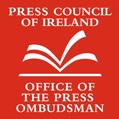As the Dáil resumed yesterday, last week’s post on libel tourism has prompted me to pick up the story of the tortuous progress of the Defamation Bill, 2006 through the Houses of the Oireachtas [the Houses of Parliament]. When we left it on this blog, it had just scraped the through the Seanad [the Senate, the Upper House of Parliament] on the second time of asking; thereafter, it had a brief consideration in the Dáil [functionally equivalent to a House of Commons, the Lower House of Parliament] before the Summer recess halted its progress once more. This post, and the next few, will consider these stages of its progress, just in time to wait (and – probably – wait and wait) for further developments in the new Dáil session.
The Defamation Bill in the Seanad
The Defamation Bill, 2006 was introduced into the Seanad on 7 July 2006, and thereby began a long and winding road to enactment, a destination it has not yet reached. …







